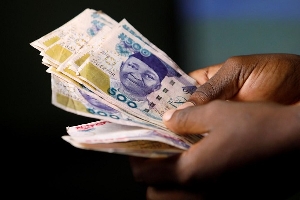One of the first major policies of President Bola Ahmed Tinubu's regime was the floating of the Naira to unify foreign exchange rates and save Nigeria the billions of dollars previously used to defend the Significant arbitrage between the official exchange rates and the rates in the parallel market, previously existed which many individuals and businesses exploited.
Although the policy was implemented with good intentions, it has resulted in the devaluation of the naira by over 200% and consequences for the Nigerian business environment. Since equipment, spare parts, raw materials, and other inputs for production are often imported, the devaluation of the naira has increased the costs of operation for manufacturing companies.
These companies are careful not to immediately transfer all these increased costs to consumers to avoid losing patronage. Consequently, they have had to deal with reduced profit margins, and some unethical ones may reduce quality, while others seek ways to cut costs; reducing staff strength is often one of the first measures taken.
Non-manufacturing companies were also impacted, as energy costs soared significantly—at one point, the price of diesel rose to over 1,500 Naira per litre before the Dangote refinery commenced production. Many companies that could not cope with the increased cost of doing business have shut down, while the high capital required to start most businesses has equally become a barrier to entry.
The devaluation of the naira has led to foreign exchange losses for many companies, with some reporting losses in billions of naira. Small and medium-scale enterprises also suffered losses. Typically, when businesses whose functional currency is the Naira take on credit facilities in foreign currency (loans or goods, services, machinery, spare parts on credit, etc.), they face foreign exchange risks, leading to losses whenever the Naira is devalued. The value of foreign exchange obligations in naira terms increases. The losses could be avoided or reduced with appropriate hedging practices.
These credit facilities are often attractive due to favourable terms compared to what is obtainable within Nigeria. When the naira was floated, its value remained highly volatile for a while, making it difficult for businesses to plan appropriately. During this period of instability, many businesses avoided making
major investment decisions, awaiting a stable economic environment to avert losses. This resulted in a decrease in foreign direct investment during that period. Worrisome is that in recent weeks, the naira has once again shown signs of instability, which the government is addressing.
The devaluation of the naira made Nigerian exports more attractive and competitive, to the advantage of export-oriented businesses. Some argue that this has contributed to food inflation in Nigeria, as people from neighbouring countries increased their demand for foodstuffs from Nigerian farmers, finding them a cheaper option due to the naira’s devaluation. This reduced food availability in Nigeria, which was already grappling with inadequate supply, leading to demand-pull inflation.
The government's efforts to improve food production in the country are ongoing. It is important to note that the increased cost of food production and transportation also contributed to food inflation. On the other hand, the devaluation of the naira has led to lower purchasing power for individuals and a reduction in household consumption. Businesses have seen demand for their goods and services dip, leading to the closure of some of them.
To cope, some had to review their prices, reducing their margins to stimulate demand. Many businesses have been unable to cope with the combined effect of increased costs of doing business and decreased sales. Implementation of the
new national minimum wage is expected to increase household consumption. While acknowledging that the floating of the Naira has enormous benefits for the Nigerian economy, including improved transparency in the Nigerian forex market and saving the country billions of dollars previously used to defend the Naira, it may be wise for the government to provide some form of intervention to the manufacturing industry, which is a major driver of the economy.
This could be in the form of reduced taxes or long-term, low-interest loans. The government could also consider using part of the revenue expected from the proposed one-time windfall tax on foreign exchange gains by banks to support Nigerian industries. Furthermore, the government should put all measures in place to ensure the stability of the value of the naira, promote investor confidence, and prevent businesses from incurring huge forex losses in the future.
Opinions of Sunday, 11 August 2024
Columnist: Kenechukwu Aguolu







![NPP Flagbearer, Dr. Mahamudu Bawumia [L] and NDC Flagbearer John Mahama NPP Flagbearer, Dr. Mahamudu Bawumia [L] and NDC Flagbearer John Mahama](https://cdn.ghanaweb.com/imagelib/pics/869/86902869.295.jpg)











